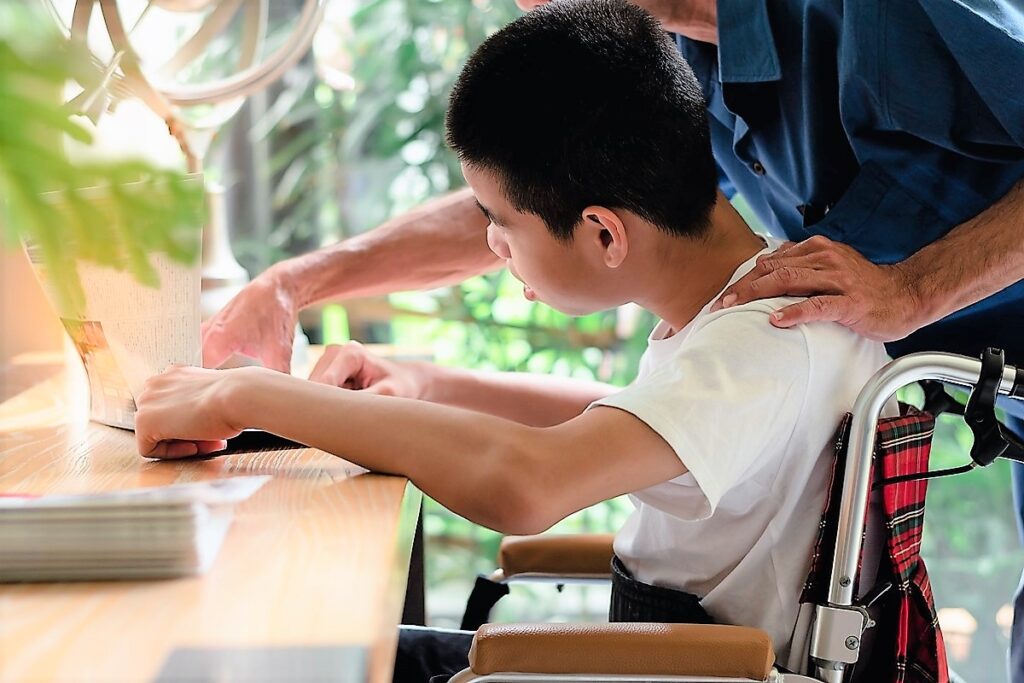Unlock Your Child’s Full Potential: 10 Reasons Why Parental Involvement in Therapy for Differently-abled Children is Important
Parental involvement plays a crucial role in the success of therapy for children with diverse needs.
As a therapist focused on special education needs, I want to help you understand the importance of parental involvement in therapy for differently-abled children and how you can get started.
Parent involvement refers to how parents implement recommendations and interventions for their child at home and in other relevant settings. It plays a crucial role in the progress and success of therapy for children with diverse needs.
For instance, if your child has homework, it is essential to ensure they complete it before going to school the next day.
However, for differently-abled children, parent involvement may involve adhering to behaviour or communication plans at home. For example, programmes like functional living skills, toilet training, communication training, and interventions aimed at reducing problem behaviours require consistency across multiple settings to be mastered and maintained.

Why is Parental Involvement Important?
Your commitment to your child’s progress is critical for several reasons, including:
- Skills such as functional living and communication abilities are essential in the home setting, so their use must be encouraged at home.
- Since your child spends most of their time at home, any non-adherence to therapy may impact the effectiveness of the intervention in the educational setting.
- Your child can better use their skills learned in novel settings when allowed to practice their skills outside the educational environment.
The Factors that Affect Parent Involvement
Multiple factors can affect parent involvement, such as having numerous family members living in the same household, lack of time, and lack of professional training and support.
With minimal parental involvement, a child’s progress could be slow or not reach mastery criteria, leading to the resurgence of challenging behaviour in the educational setting and the worsening of complex behaviour.

10 Reasons Why Your Contribution is Important
Reinforcement of therapy goals: When you actively participate in your child’s therapy, you reinforce the goals and objectives set by the therapist. This leads to greater consistency in applying therapy techniques, which can significantly improve your child’s progress.
Enhanced communication: Therapy involves a lot of communication between your child, the therapist, and you. When you are actively engaged, you can better understand the therapy techniques used and how to communicate with your children to reinforce them.
Improved self-esteem: Your proactivity can help boost your child’s self-esteem by providing support and encouragement at home. This, in turn, can positively impact their willingness to engage in therapy and their overall progress.
A better understanding of the child: Who better than you to uniquely understand your child’s needs, strengths, and challenges. With your participation, you can share this knowledge with the therapist, which can help them tailor their approach to better meet your child’s needs.
Consistent implementation of therapy techniques: Therapy techniques must be consistently applied across different settings to be effective. As involved parents, you ensure that the methods are always used at home, reinforcing their use in other situations.

Greater accountability: You can create a sense of responsibility for your child’s progress in therapy. In addition, this can motivate you to actively engage in treatment and support your child’s progress.
Improved quality of life: You can learn skills to help your child with daily living activities, improving their quality of life and independence.
Increased parental satisfaction: Your participation can increase satisfaction with the therapy process and the child’s progress. This can help you feel more invested in your child’s therapy and motivate them to continue participating.
A better understanding of the therapy process: You can better understand the techniques and strategies used. This helps you advocate for your child’s needs and collaborate more effectively with the therapist.
Long-term impact: This goes a long way for your child’s progress and development. It can help them develop skills they can use throughout their lifetime, leading to greater independence and a higher quality of life.
To get started, consult the professionals working with your child on implementing the interventions at home.
In essence, your involvement is crucial. When provided with consistency across multiple settings and people, the skills acquired by your child and their progress can be maintained and generalised to different situations without direct teaching.
By Clement Chan (BCBA)
Behaviour Analyst

